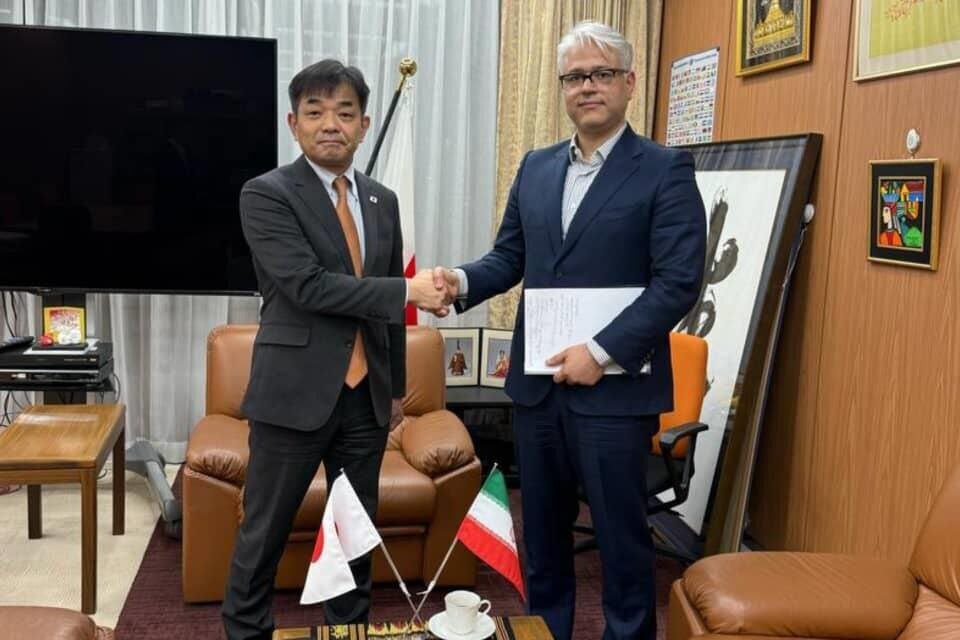Iran Japan underscore boosting technological ties
Iran, Japan underscore boosting technological ties
TEHRAN – The deputy minister for information, communications, and technology (ICT), Ehsan Chitsaz, and the Japanese vice-minister for international affairs and communications, Imagwa Takuo, have highlighted the need to expand technological cooperation in key sectors including artificial intelligence (AI), digital economy, and the development of sustainable communications infrastructure.

During a meeting held on Wednesday in Tokyo, the officials explored avenues to further enhance collaborations, IRNA reported.
Establishing the ‘Iran-Japan digital innovation center’, cooperating on policymaking for emerging technologies such as artificial intelligence, big data, and platform regulation, as well as training experts in the digital economy through holding joint university courses were among the discussed topics.
Takuo, for his part, announced Japan’s readiness to foster digital ties with Iran, saying that Iran is pursuing digital transformation path focusing on local and long-term considerations. Japan supports this approach and is fully prepared to implement cooperation projects by evaluating Iran’s constructive proposals.
The two sides also agreed to establish a joint executive working group to follow up on the implementation of the reached agreements.
Status of ICT in Iran
The Ministry of Information and Communication Technology is the highest authority in the field of ICT in the country. All activities related to the information and communication technology industry are directly related to the ministry.
The government pays special attention to plans and policies in this sector in order to maximize the use of ICT to facilitate people’s lives.
The successful designing, building, and launching of a satellite show the growth of the national technology and scientific power of a country.
Space technology has been considered a tool to expand prosperity, peace, scientific-cultural development, and economic progress in human societies.
Different nations of the world exploit this technology in some way based on their capacity, capabilities, and efforts.
Currently, 13 universities and a research institute affiliated to the Ministry of Science, Research and Technology are offering aerospace majors, thus Iran has a high capability in training specialists and experts in the aerospace sector and is a leading country in the region.
Access to telecommunication services in rural areas of the country had improved over the period as the overall number of villages with access to communication services rose to 52,182, around 93 percent of all villages, while 47,837 villages had access to home landline services.
Moreover, the number of Iranian mobile users reached nearly 135.890 million, according to the CRA which put the mobile phone penetration rate in the country at 161.67 percent.
The figures showed, however, that fixed broadband adoption in Iran had stalled at 14 percent with nearly 11.921 million customers having access to the Internet via those services.
This statistic shows that fixed broadband internet has grown by less than 2 percent compared to last year and mobile internet has experienced a growth of 10 percent. However, it can be said that the speed of mobile internet expansion is 5 times the speed of fixed internet.
MT/MG
source: tehrantimes.com